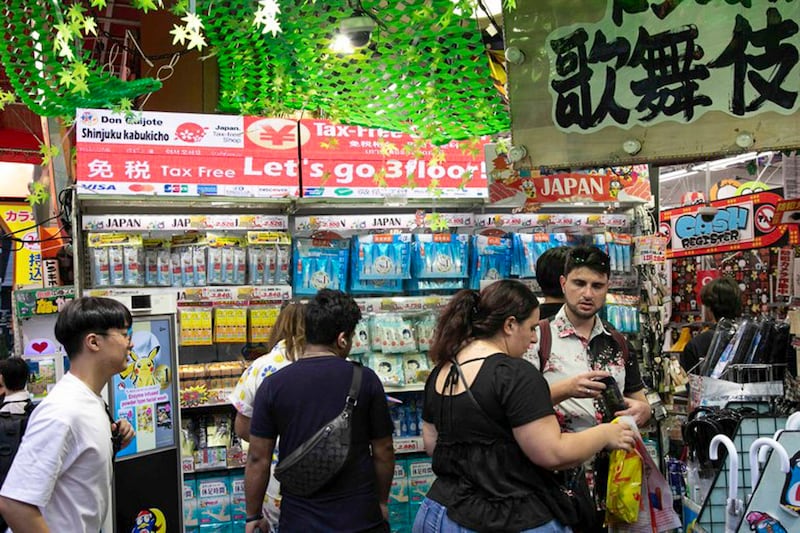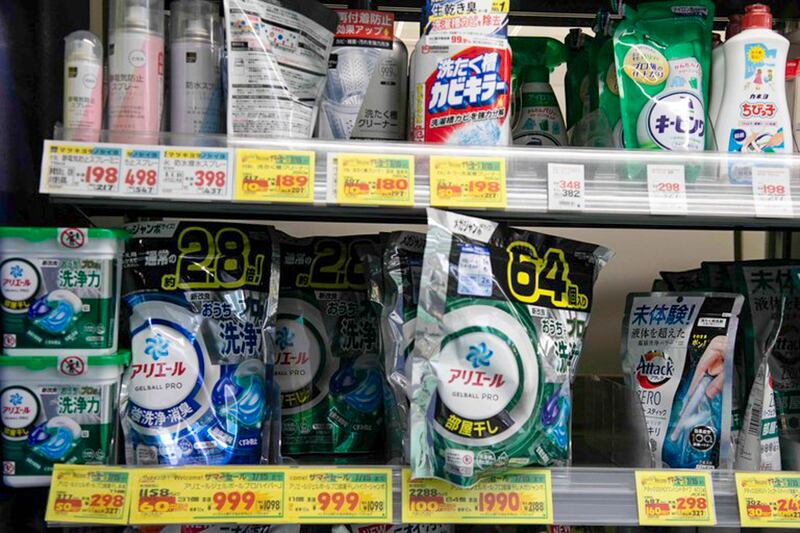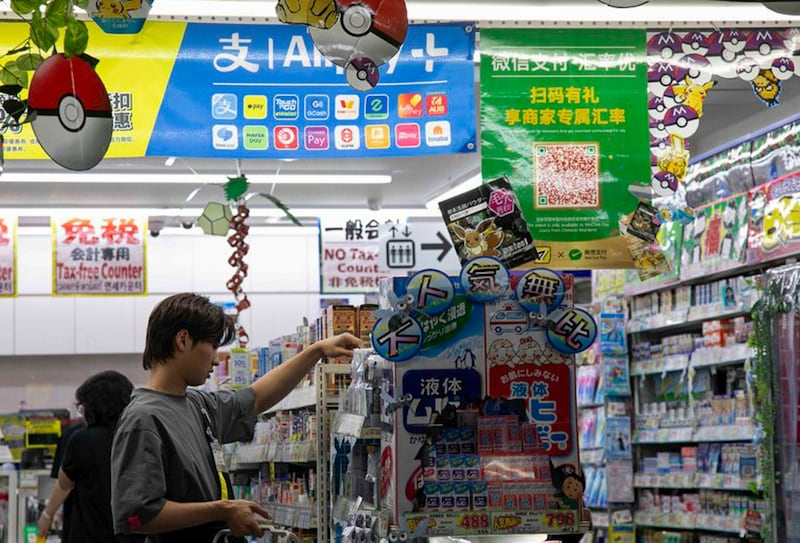Bargain-hungry shoppers from Hong Kong are flocking to Japan, taking advantage of a weak yen to cash in on affordable treats and stock up on household necessities, as well as cheaper meals in restaurants, shoppers told Radio Free Asia in recent interviews.
Hong Kongers spent HK$7.8 billion (around US$1 billion) in Japan in the first quarter of this year, according to figures from the Japanese National Tourism Organization, compared with around HK$17.6 billion (US$2.25 billion) spent by tourists from mainland China in the same period.
And instead of searching out cool, high-end tech and bargain prices for luxury brands, Hong Kongers are stocking up on essentials in bulk during their trips to Japan, searching out the best deals at supermarkets, pharmacy chains, department stores and 100-yen stores.
The trend, which comes as the city's government struggles to woo investors and global talent, has become so marked that people in Hong Kong jokingly talk about "going back home" when referring to such visits.
For shoppers like Ah B, who asked not to be identified by their real name, Japan is starting to feel like a second home because she and her boyfriend travel there so often.
"Hong Kongers have been going back and forth to Japan for many years now," she said. "It's more than just tourism; it's a feeling of being in residence there. I think it's that way for a lot of people."

Ah B and her boyfriend like to browse second-hand bookstores, picking up rare or out-of-print finds of the kind that have all but disappeared in heavily-censored Hong Kong.
"I'd like to support our local economy, but I don't have that much money to spend," she said.
Suitcases full
A shopper who gave only the surname Tang said she travels to Japan at least three times a year, and had just gotten home from Saitama prefecture when she spoke to RFA Cantonese.
Tang likes to travel with her mother, dropping around HK$25,000 (US$3,200) on four suitcase-loads of bargain items on each trip, signing up for the 10-20% discounts that are widely available through apps and loyalty cards, and stocking up on foodstuffs that will last a long time on her return to Hong Kong.
"You can become a member [of loyalty and discount schemes] after you have been there a few times, at which point you can save points or get coupons," she said. "There are also discounts on your birthday."
A Hong Kong travel journalist who gave only the pseudonym France for fear of reprisals said he has noticed similar changes in the shopping habits of Hong Kongers in Japan.

"The prices are so attractive, because the yen is so weak," he said. "There is also a much wider choice, and ... everyone in Hong Kong is familiar with Japanese products, and think they are higher quality or safer [than those made elsewhere]."
"So they stock up on daily necessities in supermarkets or local stores when they go to Japan," France said, adding that the 100-yen store Daiso and Shimamura are both hugely popular, along with wholesale supermarkets, which ship bulk orders straight to Hong Kong addresses.
Even after shipping is added, people still stand to save 20-30% on the prices they would have had to pay in Hong Kong for the same goods, he said.
Slumping Hong Kong sales
Simon Lee, an honorary teaching and research fellow at the Chinese University of Hong Kong Business School, said Hong Kong tourists spend around HK$2 billion (US$256 million) in Japan every month, taking money away from the local retail industry.
"Recent [retail industry figures] have been very poor," Lee said. The city’s retail sales last month were HK$30.5 billion, and in April they were HK$29.6 billion, down from around HK$40 billion.
Lee said he also makes several shopping trips to Japan every year, adding that Taiwan is also cheap by comparison.
"Even if you go to eat one or two meals, it will still be cheaper," he said. "You can achieve the same effect in Taiwan."

"It's cheaper to have a meal or two in these places than it is in Hong Kong," Lee said, adding that Hong Kong's streets are becoming less of a draw with the demise of its distinctive neon signs.
Hong Kongers told RFA Mandarin in a series of interviews in May that many shops and restaurants in the city have visibly closed down, and that lines are much shorter when it comes to waiting for a table since the easing of COVID-19 restrictions in late 2022.
"In Times Square [a flagship mall in Causeway Bay], there are restaurants on several floors ... and you used to have to stand in line at dinner time, around 7.00 or 8.00 p.m.," a Hong Kong resident who gave only the nickname Siu Ying told RFA Mandarin.
"Now there's no line, and it feels like there are fewer people," she said.
Meanwhile, even formerly bustling areas like Causeway Bay are looking woebegone, with a growing number of shuttered storefronts, according to a Hong Kong Island resident who gave only the pseudonym David for fear of reprisals.
"I've noticed that a lot of shops in previously prosperous areas like Causeway Bay and Wanchai have closed, and haven't been rented out in a long time," he said. "This has become a common sight on the streets ... nowadays it's news if a new one opens."
At the same time, prices for would-be diners are rising sharply, David said.
"When I first got back to Hong Kong [two decades ago], a meal out would cost HK30-40, but nowadays it's normal to spend more than HK$70-80," he said. "Personally, I can afford that, but some of my friends are struggling."
Translated by Luisetta Mudie. Edited by Malcolm Foster.
